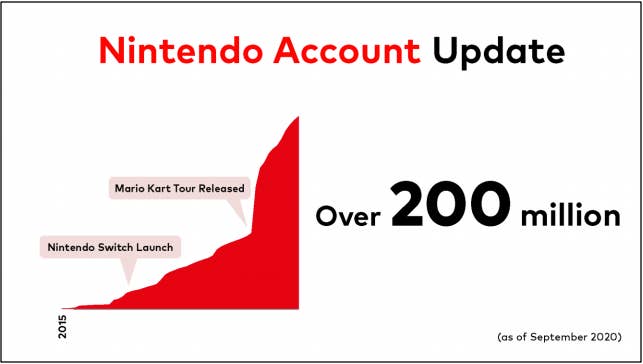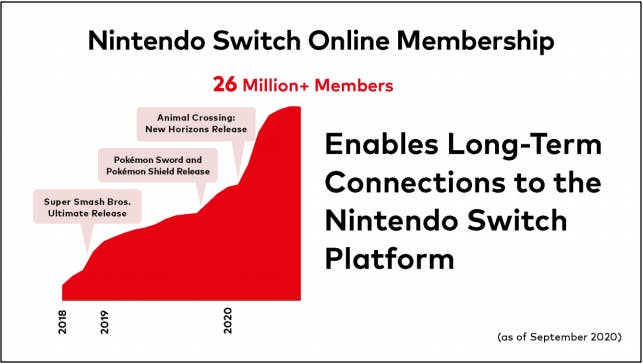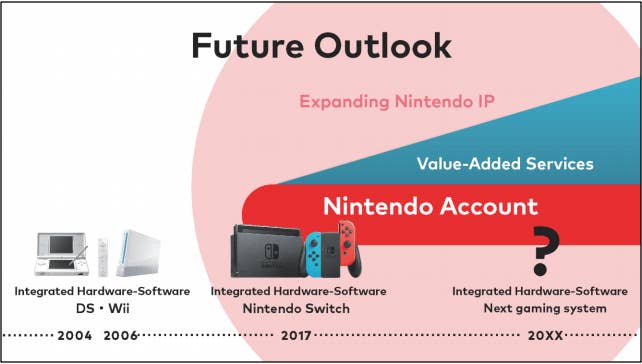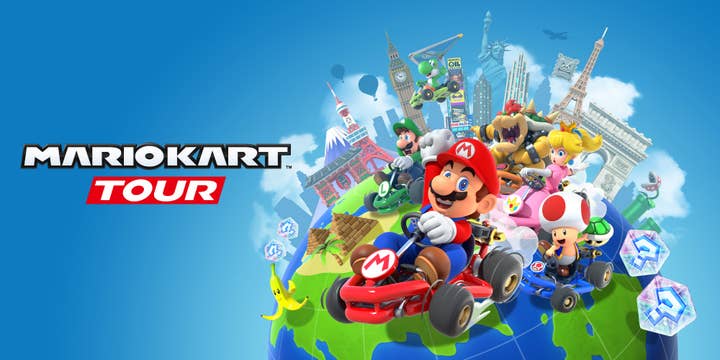Mario Kart Tour more than doubled Nintendo Account user base to 200m
Platform holder also planning more movies and TV projects, hints at next console
Mario Kart Tour single-handedly drove a massive spike in Nintendo Account registrations, bringing the total number of users to over 200 million.
This is just one of the figures included in Nintendo's recent corporate management policy briefing, in which the platform holder told analysts and investors how it is expanding its audience.
The Nintendo Account program launched in 2015 as a way for the company to connect with users across multiple platforms. As of September 2020, there are more than 200 million registered accounts worldwide.
A graph in the presentation shows the launch of Mario Kart Tour -- which requires a Nintendo Account to play -- was more effective than the debut of the Switch in getting people to sign up.

However, Nintendo president Shuntaro Furukawa says this userbase has "also been steadily increasing alongside the growing install base."
Mario Kart Tour is one of seven mobile games the platform holder has release so far, with Nintendo reporting that since the first release -- Miitomo in 2016 -- these games have racked up a combined 650 million unique downloads across 164 countries.
Furukawa believes this has also contributed to the growth of the Switch, as mobile players develop an interest in a Nintendo-owned IP such as Animal Crossing and purchase the console for a deeper experience. This is no doubt a factor in Mario Kart 8 Deluxe's ongoing success as the highest-selling Switch title.
The company also offered an update on its other service, Nintendo Switch Online, which now has more than 26 million members.
Another graph in the presentation shows that this year's launch of Animal Crossing: New Horizons has triggered the biggest spike in new subscribers, surpassing the performance of Super Smash Bros Ultimate and Pokémon Sword and Shield.

Furukawa spent some time talking about the evolving way Nintendo has been growing its audience.
From 2000 to 2010, the company was focused on expanding the overall gaming population through devices such as DS and Wii, as well as games like Wii Sports, Wii Fit and Brain Training. The result was these new customers developed an interest in more games, hence the huge success of titles such as Mario Kart Wii.
For the past ten years, the platform holder has been further expanding the number of people who have access to Nintendo's IP. Rather than relying primarily on its own devices, the company began to invest more in merchandise, the aforementioned mobile games, the upcoming Super Nintendo World at Universal Studios Japan, and partnerships with producers in other forms of visual entertainment.
The most notable of these is the deal with Minions creator Illumination Entertainment to make a Mario movie, due to debut in 2022. But Furukawa hinted this will just be the beginning of seeing Nintendo characters appear in films and more.
"Going forward, visual content expansion initiatives may not be limited to film," he said. "The scale of our investments will vary based on the type of project, but we will continue to invest in these entertainment expansion initiatives to increase the number of people who have access to our IP."
Discussing the company's future outlook, Furukawa said there will be more investment in merchandise following the enthusiasm around products such as Lego Mario and in innovative technologies, such as the Switch -- the first home console that allows users to continue playing on the go as a handheld.
There was a vague hint at Nintendo's next system on one slide, with the company president simply stating that Nintendo "still plans to expand its business around the creation of unique integrated hardware-software products."

The use of the Nintendo Account will continue to the next system as will other value-added services, presumably including a variation of Nintendo Switch Online.
Finally, Furukawa tempered expectations that digital sales will become the biggest part of Nintendo's business going forward.
As shown by the platform holder's most recent financial results, downloadable games accounted for 50.3% of all sales by the end of June 2020. However, Furukawa notes that the percentage of digital sales has stabilised to pre-pandemic levels since physical retailers started to re-open in certain markets around the world.
"Therefore, we do not expect the increased digital sales seen in the first quarter of this fiscal year to continue," he said.
"We see half of our consumers purchasing physical versions of our games, even when many of them around the world were staying at home. So, while digital versions offer several benefits to consumers, as a company that emphasises unique combinations of software and accessories such as Nintendo Labo and Ring Fit Adventure, converting our business to be 100% digital is not our ultimate goal."

